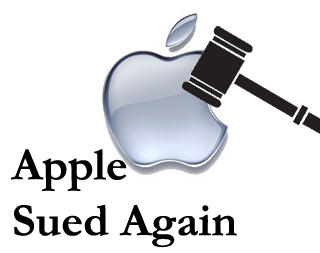By Thomas Claburn

The 105-page complaint seeks to recoup billions in lost share value after Apple's admission of executive compensation though the backdating of stock option grants.
Apple, CEO Steve Jobs, former financial officer Fred D. Anderson, former general counsel Nancy R. Heinen, and several members of the company's board of directors were sued Friday for securities fraud in a class-action lawsuit.
The case was filed in U.S. District Court in San Jose, Calif.
Plaintiffs Martin Vogel and Kenneth Mahoney, through their attorneys, charge that Apple, the above-named executives, and board members William V. Campbell, Millard S. Drexler, Arthur D. Levinson, and Jerome B. York participated in a scheme to file false financial statements, thereby concealing millions of dollars in executive compensation though the backdating of stock option grants.
In June 2006, Apple acknowledged that an internal investigation had revealed irregularities in its stock option grants between 1997 and 2001. It also said that one of the grants in question was to Jobs but that "it was subsequently canceled and resulted in no financial gain to the CEO."
According to the complaint, Apple's share price dropped 14% in the two weeks after Apple's admission, erasing more than $7 billion in share value. It's this loss that the plaintiffs hope to recover.
In December 2006, Apple said that as a result of its internal investigation, it would restate its financial results to include "an additional non-cash stock-based compensation expense of $84 million after tax [$105 million pretax], including $4 million and $7 million in fiscal years 2006 and 2005, respectively." The company said it had found no irregular grants after Dec. 31, 2002.
The 105-page complaint asserts that Jobs and the other Apple executives named in the suit knew what was going on. "The defendants knew that options were not granted on the dates that were disclosed to shareholders and falsified the company's records to create the appearance of illegality, and thus bear direct responsibility for their actions," the complaint states. "Here, Jobs and the Individual Defendants clearly appreciated the fraudulent nature of their conduct."
Jobs, according to the complaint, made an "instant paper profit" of $20,325,000 when, on Dec. 18, 2001, he received 7.5 million Apple shares in a stock option grant dated back to Oct. 19, 2001. And Apple's books did not show a $20,325,000 expense.
The complaint also cites a 10 million-share option grant in January 2000 that, through backdating, resulted in "instant paper profit" of $83,762,000 for Jobs, an amount that at the time was not disclosed to shareholders.
Apple did not respond to a request for comment.
